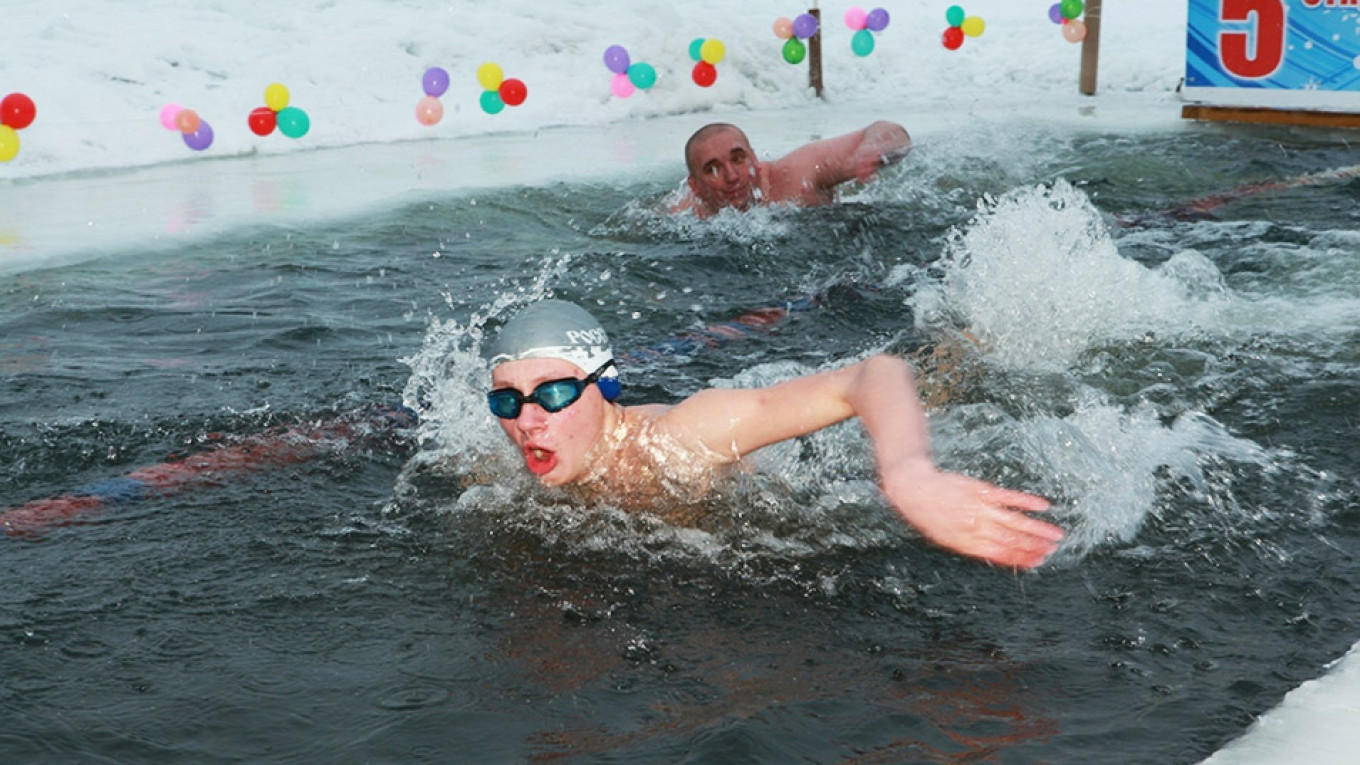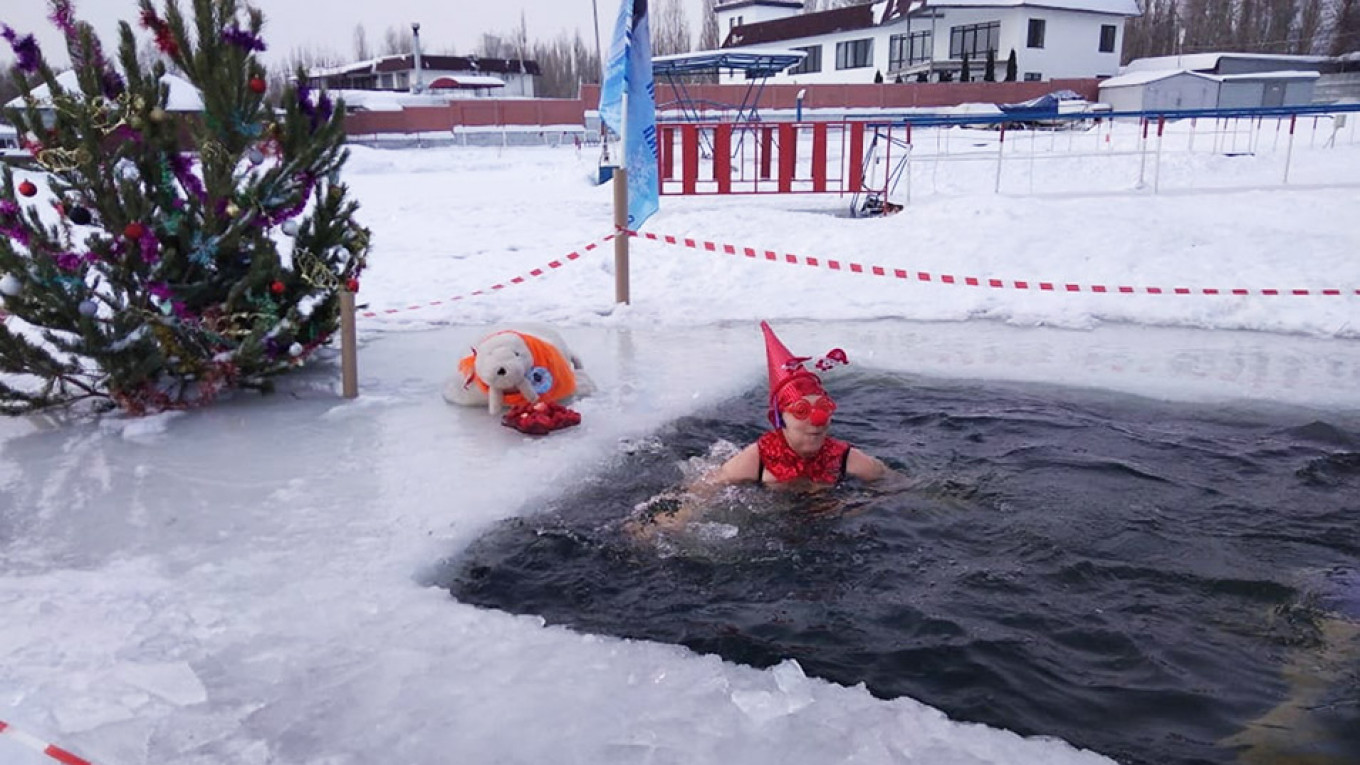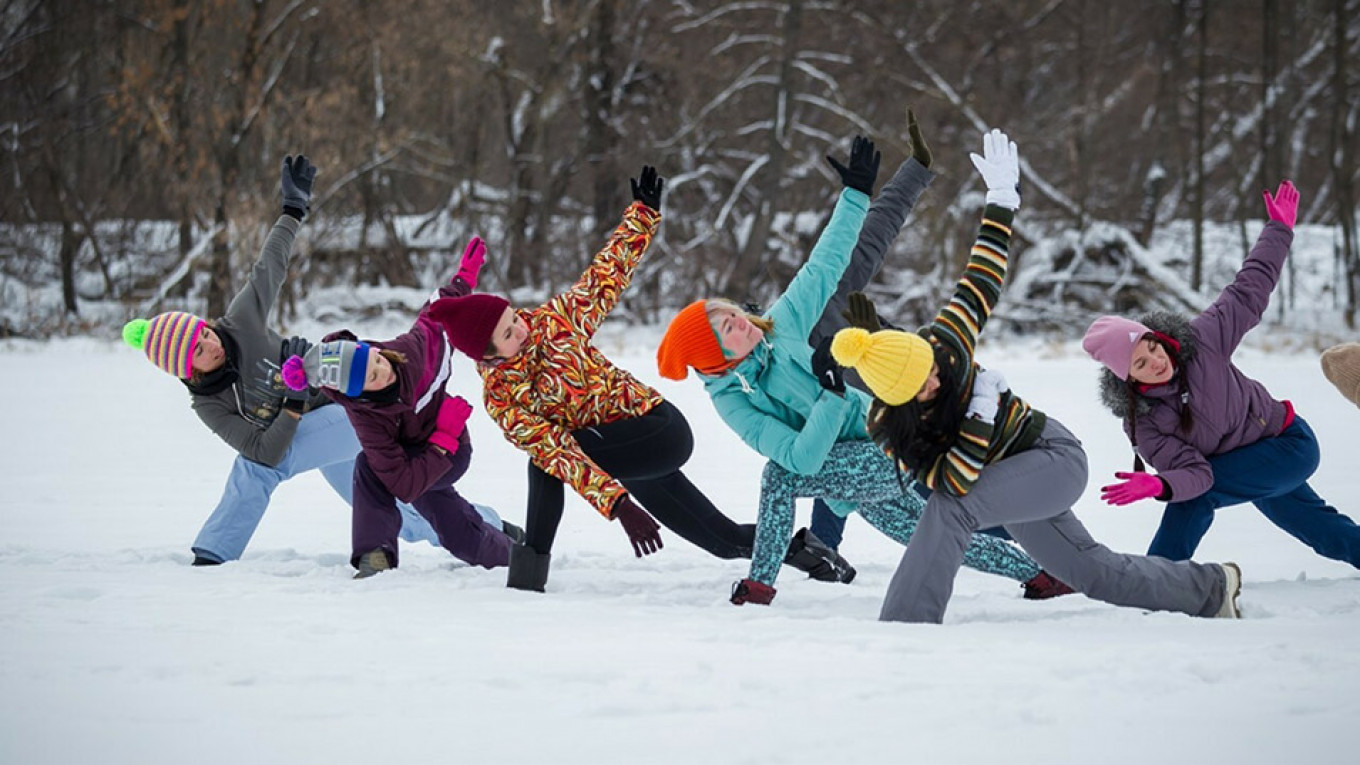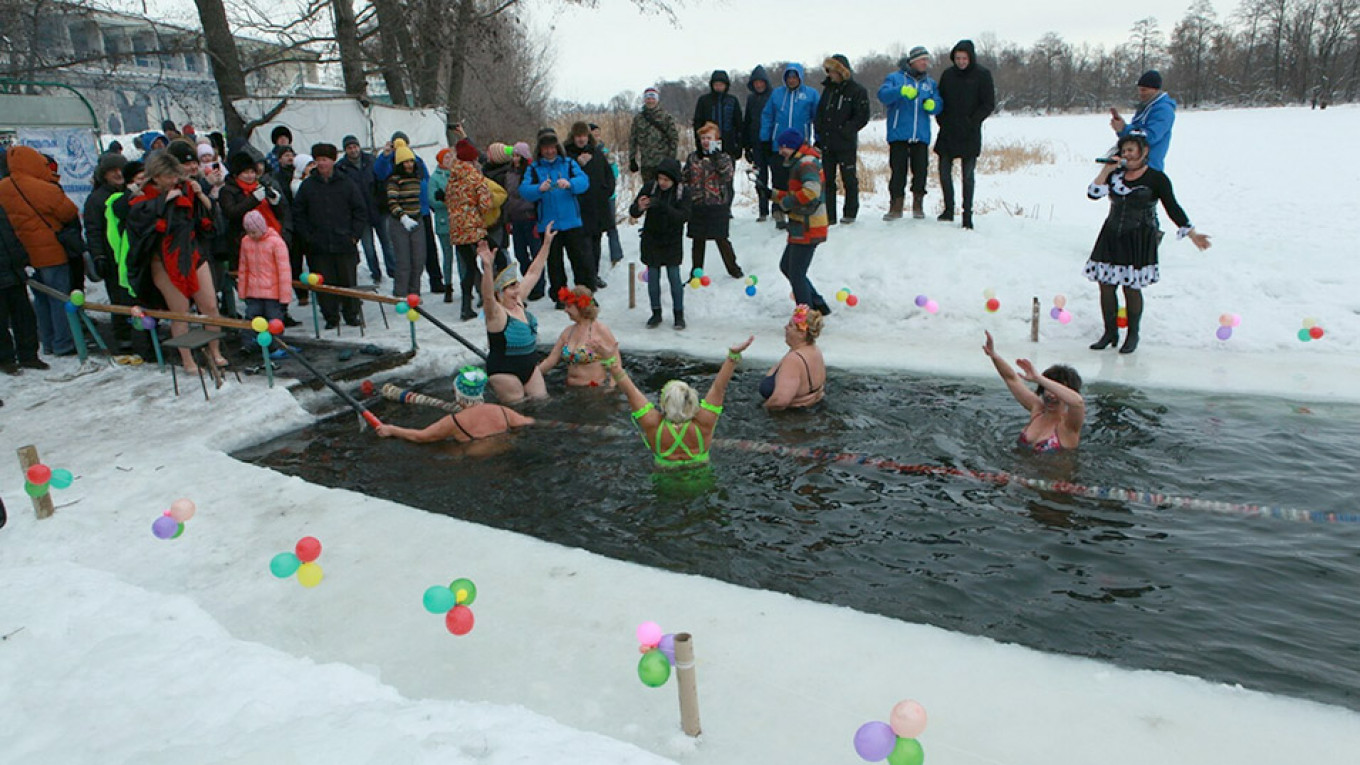At 11 a.m. Lyubov Chesnokova, 62, and her husband Alexei, 56, put on heavy socks, sweaters, coats, boats, hats, gloves and scarves and head out to the banks of the Voronezh River. The sun is shining but it is cold, as it should be in a real Russian winter. The couple strips down to bathing suits and plunge through a layer of ice into the almost freezing water. They dunk under water and swim a few minutes, then towel off, change into dry clothes and their outerwear, and then head to the swim club for a cup of hot tea.
These are just two of Lipetsk’s senior winter swimmers.
An old tradition
In Russia, winter swimming has been practiced since pagan times, when people jumped into rivers and lakes after the hot steam of the bathhouse. Some historical figures, including Emperor Peter the Great, commander Alexander Suvorov, poet Alexander Pushkin, artist Ilya Repin, and physiologist Ivan Pavlov, were also ardent practitioners of ice swimming.
Today it is a popular sport around with world, with 50 countries having branches of the International Ice Swimming Association. Russia has continued its traditions and has many winter swimming clubs. One of them is based in Lipetsk.
Named after Ivan Frantsenyuk who headed the Novolipetsk Metallurgical Plant from 1978 to 2005 and supported Lipetsk winter swimmers, the club opened in the mid-1950s. It has about 120 members of various ages, physical abilities, and professions. They are all united by their shared love of bracing dips in the Voronezh River when air temperature is 10 degrees Celsius or lower.

“I haven’t had a cold in ten years”
Nadezhda Kataeva has been president of the club for two years, although she has been an ice swimmer for ten. “My colleagues at work know about my hobby but they don’t want to join me, and neither do my husband and son, because they are afraid of getting sick. They often have flu, but I don’t think I’ve gotten sick at all since I began cold-water swimming,” Kataeva told The Moscow Times.
Lyubov and Alexei Chesnokova are also proof that the icy water has unique health benefits. Before they got into winter swimming, they got colds every winter, but for the fifth year in a row the couple hasn’t had a single cold or flu. And Chesnokova says that her back pain has almost disappeared.
They also look about ten years younger than their actual age.
Their plunge into winter swimming began in 2014 when their son suggested going to the beach in April. Alexei Chesnokov loved cold water, but his wife was afraid to jump in. But she jumped in and, to her own amazement, started swimming. She says she feels cold at first, but then just overcomes it.
After swimming from early spring to late autumn in any weather for four years, in December 2018 they started their first winter swimming season.
Now they try to swim in cold water almost every day. Chesnokova begins her day with a contrast shower, but her husband says he doesn’t need it.
Not all the swimmers are retirees. Natalya Tyurina, a 36-year-old yoga instructor, also believes that a couple minutes in cold water is all you need for good health. Paradoxically, she started winter swimming four years ago because she was cold all the time. In October, she started swimming in spring water, where the water temperature was about 4 degrees Celsius, and when she got used to that, she started swimming in an ice hole.

Doctors weigh in
Margarita Aristarkhova, doctor with a Ph.D. in medicine, told The Moscow Times that swimming in very cold water is a long-known practice to improve immunity and strength. Scientists have long been studying the effects of cold water and low temperatures on the body.
“Cold water is an extreme, unusual type of cardio stress. Short-term cold-water exposure contributes to the release of adrenaline and the subsequent production of endorphins. So winter swimming could be good for treating mood disorders, because endorphins relieve stress and have a variety of other health benefits,” Margarita Aristarkhova said. “More important, after beginning winter swimming most people suffering from joint pain or arthritis stop taking drugs because their body begins to produce substances that help get rid of chronic inflammation.”
But it’s good for more than health. Aristarkhova noted that winter swimming rejuvenates the body, helps preserve skin tone and strengthens hair. For men, swimming in cold water maintains endurance and helps their libido.
There is no consensus among doctors about the best age to begin ice swimming. In some Russian kindergartens, children from age three to seven pour cold water on themselves. At first they do it in the shower, then, when they are ready for it, they do it outside in any weather. It is believed that winter swimming can improve the children’s immune system, keep them healthy and reduce the risk of a cold. However, adults need to be especially careful not to harm children’s health.
On the other end of the swim age chart, there is no age when people should stop winter swimming.

Train before you jump
Winter swimmers are different from people who plunge into ice water once or twice in their lives, for example, at traditional Epiphany ice holes. “Before starting,” Aristarkhova said, “you should consult your doctor, since this is really extreme stress on the body. If someone has some underlying conditions or diseases, it can cause serious problems instead of improving their health.”
“Proper training is essential not only for success but for survival,” said Andrei Kondrakhin, doctor of clinical pharmacologist at Chekhov Regional Hospital (Moscow region) and a Ph.D. in medicine.
“The body must be ready for temperature extremes,” Kondrakhin added. “If the water temperature is 5-15 degrees Celsius, a novice will be able to survive five to eight minutes. Hypothermic shock develops in the first five minutes in cold water. The person has trouble breathing and feels pressure in his head. The surge of adrenaline makes a person’s heart beat faster, and blood pressure rises rapidly to critical values. The body begins to shiver. The muscles of the chest and abdomen frantically contract as the body tries to increase heat production.”
And when the temperature of the skin drops to 30 degrees Celsius, the shivering stops, the body begins to cool rapidly, blood pressure decreases to critical numbers, the heart contracts more slowly, breathing slows down, and the person feels drowsy.
“Biochemical processes occur at a certain speed, one after another and at a certain body temperature,” Kondrakhin said. “At low temperatures, biochemical processes cease to work, and the person dies. That’s why you must train for this.”
Nadezhda Kataeva agrees: “It takes time to get used to the cold water. Most people join the club after a period of training, such as taking regular contrast showers, swimming in spring water or pouring cold water on themselves. Most of the ice swimmers start swimming in summer or early autumn and gradually acclimatize.”

Ice champions
Lyubov Chesnokova has really taken to the sport. She took part in the 5th Lipetsk open championship in winter swimming. She competed in the 25-meter race for women over age 61 and came in second with a time of 35.7 seconds.
In addition to these competitions, on March 8 — International Women’s Day — the men sprinkle rose petals on the water in the ice hole for their women swim-mates. The club also holds an annual event with yogis who teach winter swimmers exercises in the snow, and then they swim together. And on Maslenitsa, everyone eats pancakes in the ice hole.
Winter swimmers believe that the only thing between anyone and an ice hole is just their own fear. And once they overcome it, they’ll never regret it.

Leave a Reply